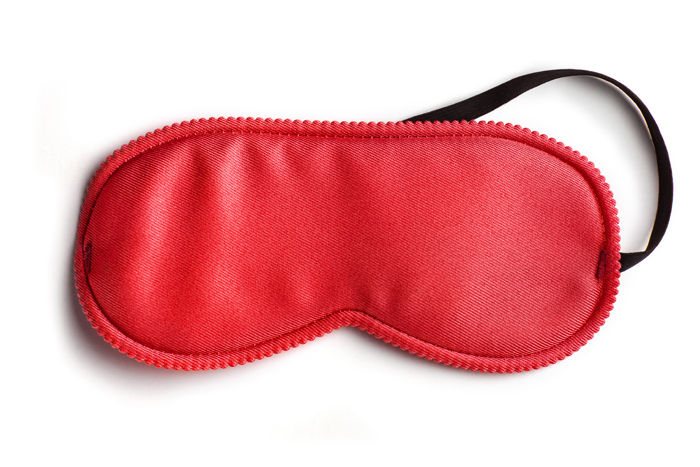Sleep Medications & Insomnia Treatments in Tardeo, Mumbai
From being able to control one’s anxiety levels to inducing sleep, medicines have come a long way from being just a solution to an illness or a disease - they now ensure our overall well-being.

What do we need to know about insomnia and sleep medicine?
Insomnia is a cumulative term used for a condition whereby a person is unable to sleep or has issues in staying asleep for the desired duration. Insomnia is usually an outcome of some other health-related issue. However, it is the most prevalent sleep disorder and is mostly overlooked by individuals.
In some individuals, the condition gets worse leading to weeks and months of sleeplessness which hampers their ability to perform basic day-to-day functions. As opposed to daytime sleepiness or hypersomnia, insomnia is proven to be far worse and leads to severe ailments such as behavior change, high blood pressure, congestive heart failure, diabetes, etc.
Consult a general medicine doctor near you or visit a general medicine hospital near you to get sleep medicine in order to combat the long-term effects of insomnia.
What are the types of medications?
Medicines for inducing sleep majorly depend on the underlying causes of sleeplessness. Most of these medicines cause drowsiness in an individual while others affect specific parts of the brain to subdue their activity, thereby inducing sleep. Terms like hypnotics, sedatives or tranquilizers are used alternately for such medicines. In general parlance, they are divided into prescription and non-prescription or over-the-counter (OTC) pills.
With the help of cognitive behavioral therapy (CBT), a doctor can understand the causes of sleeplessness and suggest medications accordingly. Some individuals suffer from acute insomnia and prescription medicines can help. In other cases, doctors usually suggest changes in lifestyle such as exercising, eating healthy and avoiding daytime naps before prescribing medicines. Avoid using OTC pills as they can have adverse effects on the body.
What leads to insomnia?
One of the most common causes of insomnia is stress. It can be related to personal or professional life and can have a grave impact on one’s sleep cycle. Other causes are:
- Unhealthy lifestyle - heavy dinners, excessive consumption of caffeine, smoking, drinking, etc.
- Disproportionate use of smartphones and social media
- Erratic work schedules and travels
- Changes in some medications
Most causes can be dealt with by bringing in affirmative changes in habits and improving lifestyle. For changes in medication, consult a doctor.
When should you see a doctor?
You must consult a doctor if you start noticing any of these:
- Recurring headaches advancing to phases of unconsciousness
- Numbness or uncomfortable feeling in your legs
- Extreme drowsiness or lethargy during the day
- Difficulty staying awake while performing daily chores
You can request an appointment at Apollo Spectra Hospitals, Tardeo, Mumbai.
Call 1860 500 2244 to book an appointment.
What are some of the risks associated with taking sleeping pills?
Treatment for sleeplessness is a long and continuous process. It usually depends on the reason that caused insomnia in the first place. Once diagnosed, if you are taking medications for sleep, it is advised that you should avoid consuming alcohol during this treatment period as it can cause overdosing. There is also a possibility of developing parasomnia as a side effect of some medication.
These drugs can be addictive and are hence prescribed only for a short duration. Consult a doctor before self-medicating. Also, avoid administering OTC drugs to infants or children as this can cause overdosing in them and can be fatal.
Conclusion
A continuous state of sleeplessness can have an adverse impact on your health. It can interfere with your day-to-day activities that require attentive thinking and can even alter the normal functioning of other vital organs.
If you have been taking sleep medicines for a really long time, there are chances that your body gets accustomed to the same and you cannot sleep without taking the sleep medicine. If it has become a habit, consult a doctor.
The medications are administered in regulated quantities and a healthcare practitioner carefully monitors the impact of the doses on an individual. In case you are facing day-time sleepiness, discuss this with your doctor. As a precaution, always take your pills a few hours before your actual bed-time to get the full benefit of the medicine.
Some studies show that many patients suffer from a hangover-like situation during the initial days of starting the medications. In addition, some also complain of having constipation or diarrhea along with a constant feeling of dry mouth. These effects can be neutralized by following your doctor’s advice, maintaining optimum levels of hydration and completing the sleep hours without getting disturbed by external factors.
Symptoms
Our Top Specialities
NOTICE BOARD
CONTACT US
CONTACT US
 Book Appointment
Book Appointment


.svg)
.svg)
.svg)
.svg)








